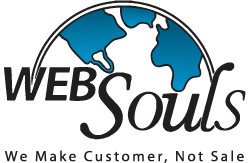When you’re getting your website hosted for the first time, things can seem a lot confusing.
Most web hosting agencies offer a range of different hosting plans, and if you’re a small business owner, instinct would tell you to just go for whatever is the most affordable.
Now, don’t get me wrong here. It’s good to keep affordability under consideration when you have a low budget, but it’s not the only thing you should be focused on when purchasing a web hosting plan.
For example, web owners need to make sure their sensitive data would be safe, their website would perform well, and that their chosen web host would provide 99.9% uptime.
Apart from this, you’d find everything you need to know about web hosting in this article today.
So, read on!

How to Make the Right Decision When Purchasing Web Hosting Services?
Let’s start with the basics.
Whether you’re thinking of getting one of those virtual private servers or a shared hosting plan, choosing a good hosting agency should be your top-most priority.
If you don’t already have a website, most leading hosting companies also provide web development services, ecommerce solutions, and domain registration. So, you can get it all done in one place.
However, the major reason behind selecting a reputed host is to avoid getting scammed and to ensure that you’d be provided with quality services that’re worth your efforts.
After you’ve found a reliable host, make sure to choose a plan that fits your needs. Here are 7 things you need to know before choosing a hosting plan:
1. The Differences Between Various Hosting Types
Most start-ups and small businesses go for shared hosting when it’s their first time in the web world. However, understanding the basic differences between hosting types is extremely important if you want to make the right decision.
- Shared Web Hosting: As the name suggests, shared web hosting means your website would be stored on a server that’s shared with other sites. In other words, multiple websites are hosted on a single server, which reduces the amount of hosting resources being used by a single web owner and results in reduced cost. That’s why, shared hosting plans are the most affordable.
- Business Hosting: In a business hosting or unlimited hosting plan, the host won’t put restriction on your usage of bandwidth, FTP, databases, and email IDs. It offers more power and better performance as compared to shared hosting.
- WordPress Hosting: If you don’t have much technical know-how, a WordPress hosting solution would be perfect for you. With WordPress hosting, you can build a website and a hosting environment that caters to the most commonly used CMS.
- Virtual Private Servers: Similar to shared hosting, you’d be sharing the server with other websites if you purchase a VPS hosting plan. However, in VPS, you’d be provided with a particular virtual compartment for your site. This makes VPS a safer option as compared to shared hosting. But for a VPS plan that isn’t managed by your host, you’d need to have prior technical knowledge to be able to maintain your own Virtual Private Server.
- Dedicated Servers: These are for large websites, or if you want to host multiple websites and have total control over your hosting environment. In a dedicated server plan, you’d get the resources of a whole server, without any restrictions whatsoever. However, if you’re not getting a managed dedicated hosting plan, having prior technical knowledge and expertise is a must.
- Reseller Hosting: Some hosting agencies allow their clients to start their own hosting business and become a reseller. You can purchase a reseller hosting plan and provide hosting services to your own clients without having to deal with server management issues.
2. The Bandwidth and Disk Space You’re Getting
Bandwidth and disk space are often ignored by new web owners because they don’t think their site would receive much traffic.
But what about when your business starts growing?
You need to make sure that even if you get tons of visitors at the same time, your website would keep working smoothly. So, choose a plan accordingly.
3. Unlimited Isn’t Really Unlimited
You must’ve already come across the word ‘unlimited’ when shopping for website domain and hosting.
Well, here’s a fact: there’s no such thing as unlimited when it comes to hosting.
Then what does the term mean?
When you get a hosting plan with ‘unlimited’ bandwidth or storage, your host won’t measure your usage or limit it artificially, but things would still be quite ‘limited’, because you can only use the amount of bandwidth that can be handled by your hardware.
Which means, even with an ‘unlimited bandwidth’ package, you can only transmit 10 Megabytes of data per second if your server has a 10 Mbps port.
4. Backup is Important
Your site data can be lost accidentally due to server issues, so it’s best to have a host that can perform weekly backups and help restore your site in case of accidental data loss.
If you don’t trust your chosen web hosting agency, it’s wise to do off-site backups and always be ready for the worst.
5. Make Sure You’re Getting Proper Website Security
Website security is a huge issue. If your site isn’t properly secured and monitored, hackers can get to it, steal your sensitive data and misuse it.
Plus, there’s always the risk of malware, scams, and viruses.
So, make sure you have enhanced website security and proactive monitoring included in the hosting plan you buy.
6. Your Chosen Host Should be Flexible
When it comes to dedicated server plans, web hosting companies rarely support applications that’re not a part of their initial server setup, which is often provided free of cost.
You need to find a host that has experience in supporting a variety of different applications and would provide you with their expertise when your hosting with them.
7. Good Customer Support Matters a Lot
Let’s face it, websites don’t always run smoothly.
Your site can have issues related to page loading, server downtime, slow speed, etc.
Who would you contact in case of such issues?
Of course, your host. It’s important that your selected hosting agency in Karachi, Lahore, or anywhere else provides robust customer support. You should be able to contact your service provider anytime during the day through chat, phone call, and email, and get the required help or solution without having to wait much.
Apart from this, here are some pro tips of you’re new to web hosting:
- Always choose a well-reputed host. Your site’s performance and page load speed can have a direct impact on your search engine rankings. It can also affect your rate of conversions and the amount of online sales you make. So, it’s important to play safe rather than cheap.
- If you want to build your customers’ trust, get an SSL certificate and protect your clients’ sensitive data from hackers.
- Look up for “SEO services in Pakistan”, or wherever you’re located, and have your site optimised for giant search engines in order to reach your potential customers when they’re looking for you.
- When going for shared hosting, double-check with your host and ensure the safety of your business data. If possible, get enhanced website security added to your hosting plan.
Lastly, remember that web hosting can impact your digital marketing efforts. So, choose wisely.

With over 15 years of hands-on experience in web hosting and Linux, stands out as a practical expert in the field. At Websouls, he applies his deep technical skills to solve complex challenges, directly impacting the success of brands. Waqas's approach combines innovative problem-solving with a rich understanding of digital infrastructure, making him a key player in the industry. Follow him on LinkedIn.
 PKR (Rs)
PKR (Rs)
 USD ($)
USD ($)
